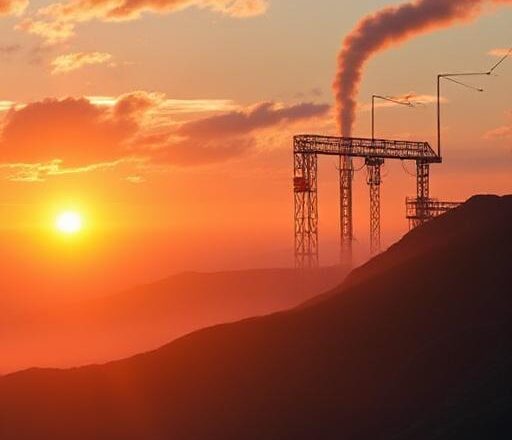Introduction
By 2025, climate change has shifted from being a distant crisis to a daily reality. Heatwaves, superstorms, and wildfires dominate headlines, while nations scramble to meet their 2030 emission targets. Amid this urgency, a new wave of climate tech startups—powered by AI, carbon capture, and renewable breakthroughs—is transforming how we combat global warming.
This article explores the cutting-edge technologies, the money flowing into green innovation, and the big challenges humanity faces as it races against time.
1. The Climate Reality Check in 2025
-
Global average temperatures hit 1.5°C above pre-industrial levels for the first time.
-
Climate disasters cost the world economy $400+ billion annually.
-
Governments are under pressure to phase out fossil fuels faster than ever.
But unlike the climate talks of the past, 2025 feels different: tech is finally catching up to the urgency.
2. The Rise of Carbon Capture and Removal
One of the most promising climate tech sectors is Carbon Capture, Utilization, and Storage (CCUS):
-
Direct Air Capture (DAC) plants are scaling rapidly—Climeworks in Iceland just opened the world’s largest facility, sucking 1 million tons of CO₂ annually.
-
Oil giants like ExxonMobil and Shell are investing billions into carbon capture to offset emissions.
-
AI is being used to optimize CO₂ absorption rates, cutting costs and boosting efficiency.
Some skeptics argue CCUS is just an excuse to keep burning fossil fuels—but it’s undeniable that it’s becoming a pillar of climate strategy.
3. AI as a Climate Weapon
Artificial Intelligence is emerging as a surprise climate hero:
-
AI-powered smart grids balance renewable energy in real time.
-
Predictive climate models now forecast extreme weather with unprecedented accuracy.
-
AI-driven agriculture reduces water usage and fertilizer emissions.
-
Machine learning helps optimize building energy consumption, cutting waste in cities.
In short: AI isn’t just automating industries—it’s helping save the planet.
4. The Green Investment Boom
Venture capital and governments are pouring money into climate tech:
-
$70+ billion invested in 2024 alone across carbon removal, battery tech, and sustainable food.
-
Tech giants like Microsoft, Google, and Amazon have pledged net-zero by 2030 and are funding startups aggressively.
-
The carbon credit market is evolving, with blockchain ensuring transparent tracking of emissions.
Investors are betting big that saving the planet is the next trillion-dollar industry.
5. Everyday Life in a Climate Tech World
By 2025, people are already feeling climate tech in daily life:
-
Cities are rolling out AI-controlled traffic lights to cut emissions.
-
Homeowners use affordable solar panels and grid batteries as standard.
-
Carbon footprint trackers are built into banking apps, nudging consumers toward greener choices.
For younger generations, sustainability isn’t a “trend”—it’s the baseline expectation.
6. Challenges Ahead
But the road isn’t smooth:
-
High costs: Carbon capture plants are still expensive compared to traditional energy.
-
Policy gaps: Many governments lack clear climate regulations.
-
Equity concerns: Developing nations risk being left behind in the green transition.
-
Moral hazard: Over-reliance on tech could delay the urgent need to cut emissions now.
7. Looking Toward 2030
By the end of this decade, experts predict:
-
Carbon removal capacity will grow 10x.
-
AI-driven energy optimization could cut emissions by 20% globally.
-
New industries—like synthetic fuels and lab-grown meat—will reshape supply chains.
-
Climate tech could become the defining growth sector of the 2030s.
Conclusion
Climate tech in 2025 represents a turning point. With AI, carbon capture, and renewable energy converging, humanity finally has the tools to fight back at scale.
But technology alone won’t save us—it requires bold policy, massive investment, and global cooperation.
The race against climate change isn’t just about survival anymore—it’s about building a new kind of economy for the future.
